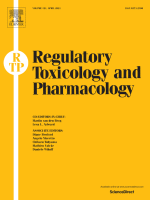
BHA (butylated hydroxyanisole) is one of many synthetic antioxidants used in food, food packaging, pharmaceuticals, and cosmetics. Since 1947, BHA has been added to fat-containing foods as an antioxidant to preserve the food and prevent the loss of certain vitamins. However, the International Agency for Research on Cancer (IARC) has classified BHA as “possibly carcinogenic to humans,” because it was linked to tumor formation in rats exposed to high levels. IARC later determined that the cancer-causing mechanism in rats isn’t relevant to humans, but the classification has not been rescinded. Based on this misclassification, BHA is listed as a regulated chemical under California’s Proposition 65, and much consumer concern has arisen regarding the safety of BHA-containing food. A paper just out by a team that includes Dr. Chad Thompson, of ToxStrategies, concludes that the body of evidence on BHA does not support a causal connection between BHA at permitted levels in food and any form of cancer. The authors point out that such misclassifications can cause undue concern and potential over-regulation, and do not benefit human health. The paper appears in Regulatory Toxicology and Pharmacology and can be viewed here.
